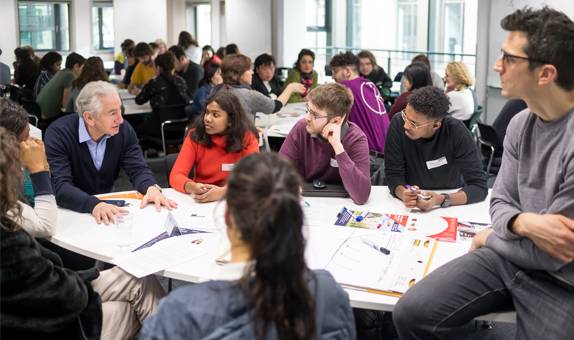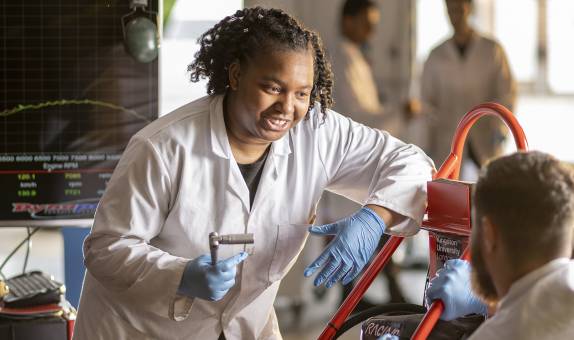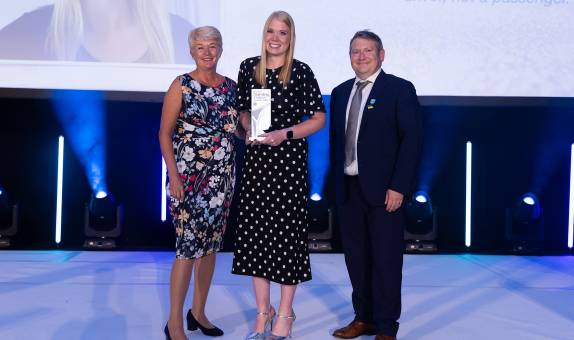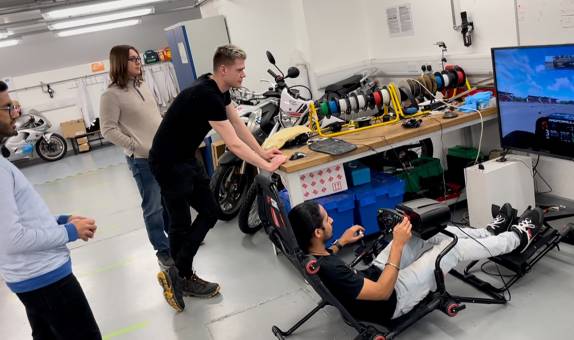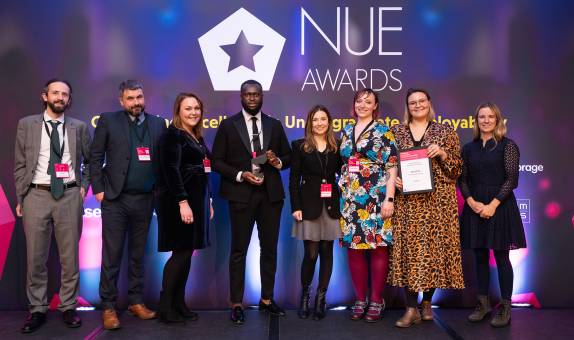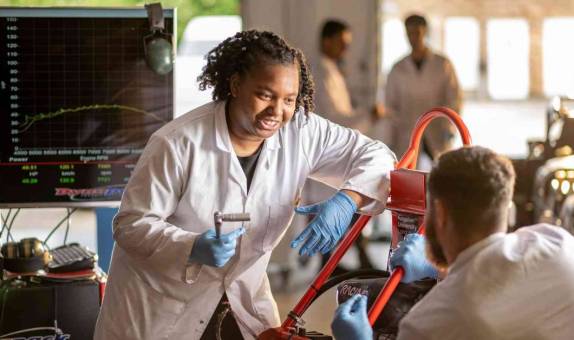Championing Future Skills
Kingston University is leading the way in a major campaign highlighting the importance of skills for innovation and the vital role they play in driving a thriving national economy. The results of our latest survey, conducted with support from YouGov and sampling more than 2,000 businesses and 1,000 students, demonstrate that key attributes such as problem solving, critical thinking, communication, adaptability and creativity remain among the core skills most valued by employers.
Read the latest findings and recommendations in our report and learn more about what the government, sector regulators, employers and universities can do next to deliver future skills and help secure the UK's economic prosperity.
Show your support and be part of the conversation on social media with #FutureSkills.
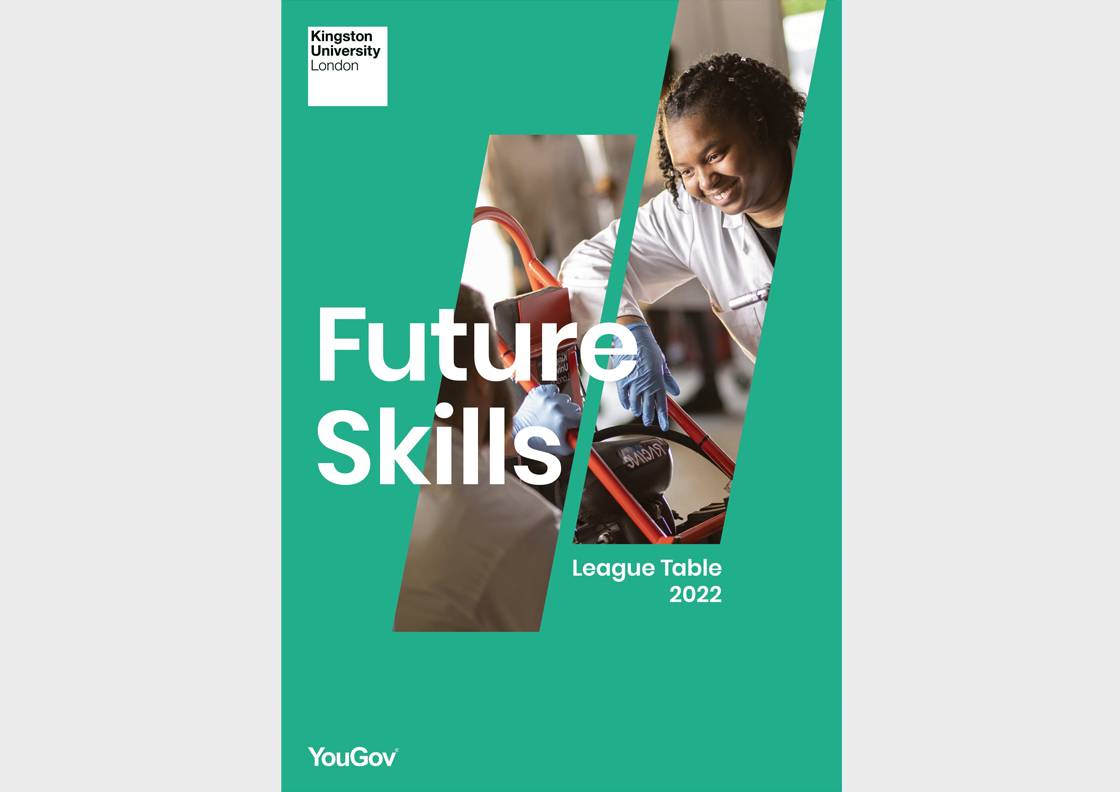
Integrating Skills for Innovation
Building on findings in our Future Skills report 2021, the new survey results show the ability to communicate, analyse, adapt, problem solve and think creatively remain the key skills businesses need.
Our new report calls for a joined-up approach across government, business and universities to ensure future skills are embedded in higher education, with greater provision of lifelong learning to future-proof the UK workforce. The creation of a Future Skills Council, co-chaired by Ministers from the Department for Education and Department for Business, Energy and Industrial Strategy and modelled on the Creative Industries Council, would steer the approach needed to deliver a skilled, adaptable workforce. It could also support Levelling Up priorities by addressing regional skills gaps through partnership working with local employers.
The ability to communicate, analyse, adapt, problem solve and think creatively are the key skills that business requires. Despite the changing global situation, such skills were similarly identified in polling last year. What business says it needs could not be more emphatic. As our case studies demonstrate, those skills can be delivered in a range of courses and the work of a multidisciplinary team can powerfully raise performance. Kingston University is so committed to the power of this that our new Town House Strategy will ensure Future Skills are embedded in the curriculum for every student.
This report confirms that Future Skills are a priority for the nation's prosperity. But to deliver the successful integration of Future Skills in all areas requires coherency in both policy and approach. We need government, industry and education to work collaboratively to ensure existing hurdles are overcome, emerging obstacles can be avoided and potential opportunities maximised."
Professor Steven Spier, Vice-Chancellor, Kingston University

Case studies
Explore examples of how creative skills have led to business transformation, regional growth and impacted local communities. These case studies showcase the environment in which the rigour of creative problem solving prospers and helps grow new approaches, products and industries.
Future Skills report launched at the House of Commons
Kingston University launched its 2022 Future Skills report during an event at the House of Commons, unveiling its proposals for tackling the nation's skills shortage and helping the UK's economy prosper.
The event was attended by business leaders, MPs, students from the University and policymakers, who heard from Vice-Chancellor Steven Spier and Parliamentary Under-Secretary of State for Apprenticeships and Skills Alex Burghart.
Importance of Future Skills to economy outlined at House of Lords inquiry
The University's sector-leading work on Future Skills led to Vice-Chancellor Professor Steven Spier being invited to share the findings of the latest report with a House of Lords select committee inquiry set up to look at the future of the UK's creative industries.
Professor Spier outlined how the University was embedding Future Skills across the curriculum as well as some of the report's key recommendations around policy change and how government and business could work more closely to support the delivery of these skills.
Future Skills in the news
Key calls in report
- Future Skills Council: We ask the Government to create a Future Skills Council, modelled on the Creative Industries Council, showcased above, with both the Education and Business Secretaries as Co-Chairs. The Future Skills Council will focus on how to solve the workforce skills challenge and determine the roles government, industry and education can each play.
- Expand the remit of the Minister for Higher and Further Education: In addition, to underpin this cross-departmental focus on skills delivery, we ask the Government to position the Minister for Higher and Further Education in both the Department for Education and Department for Business, Energy and Industrial Strategy.
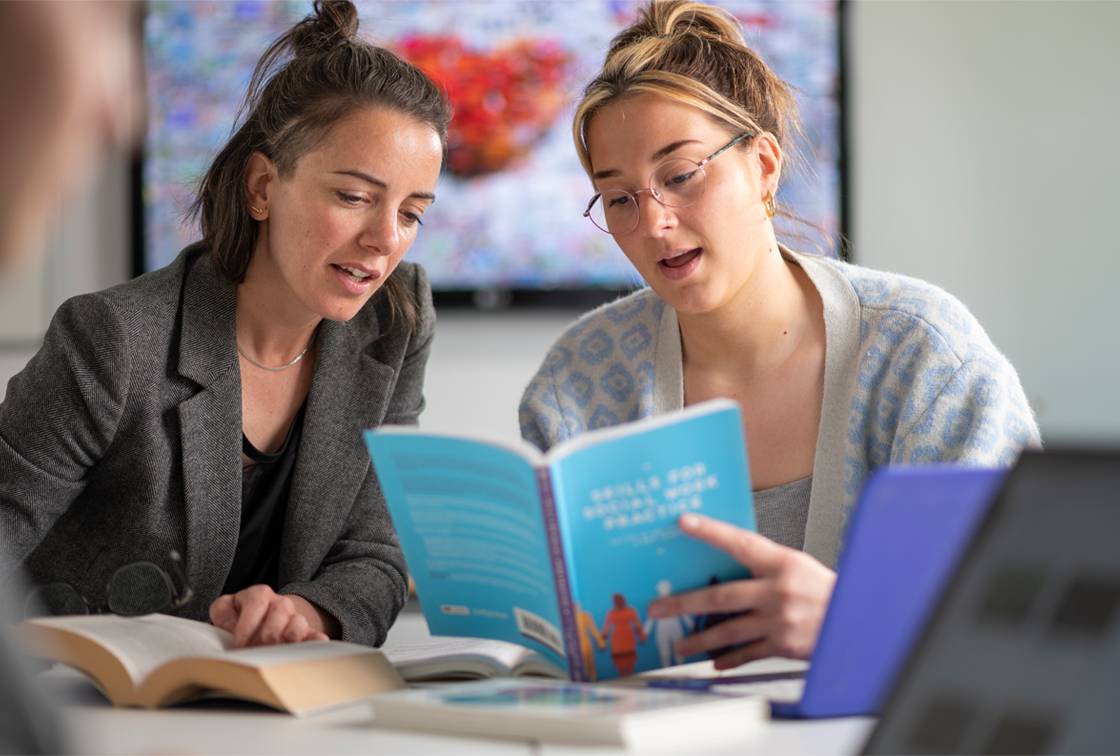
Get in touch
Show your support on social media with #FutureSkills.






